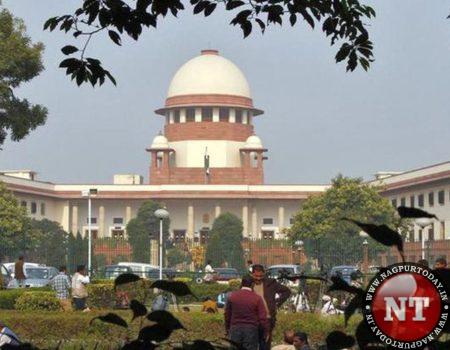New Delhi: In a quick turn of events, the Supreme Court on Monday referred the electoral bonds case to a five-judge Constitution bench. The decision to refer the case to a five-judge bench was pronounced by Chief Justice of India D Y Chandrachud.
Last week, a three-judge bench led by CJI Chandrachud agreed to hear the petitions after the petitioners urged that the matter be heard before the next Lok Sabha elections scheduled to be held in April-May 2024.
“In view of the importance of the issue raised, and with regard to Article 145(4) of the Constitution of India, the matter be placed before a bench of at least five judges,” Live Law quoted the CJI as saying. The matter is set to be retained on the board on October 30.
The case pertains to a batch of petitions challenging the amendments introduced by the Finance Act 2017 paving the way for the anonymous electoral bonds scheme. The 2017 amendment to Section 29C of the Representation of Peoples Act 1951 allows a donor to buy an electoral bond at a specified bank through electronic payment after completing their KYC.
However, political parties are not required to disclose the source of these bonds to the Election Commission of India. The scheme allows the purchase of bonds for any value, in multiples of Rs 1,000, Rs 10,000, Rs 1 lakh, Rs 10 lakh or Rs 1 crore. The donor’s name will not be mentioned on the bond.
The face value of the bonds shall be counted as income by way of voluntary contributions received by an eligible political party, for the purpose of exemption from Income-tax under Section 13A of the Income Tax Act, 1961.
Petitions challenging the anonymous electoral bonds were filed in 2017. The petitioners included the Communist Party of India (Marxist), and NGOs Common Cause and Association for Democratic Reforms (ADR), which challenged the scheme as “an obscure funding system unchecked by any authority”.
The Finance Act 2017 introduced amendments in the Reserve Bank of India Act, Companies Act, Income Tax Act, Representation of Peoples Act and Foreign Contributions Regulations Act to allow the electoral bonds scheme. As per the petitioners, amendments to Companies Act 2013 will lead to “private corporate interests taking precedence over the needs and rights of the people of the State in policy considerations”.
The Supreme Court had in 2021 refused to stay the release of electoral bonds prior to Assembly polls in certain states.

















